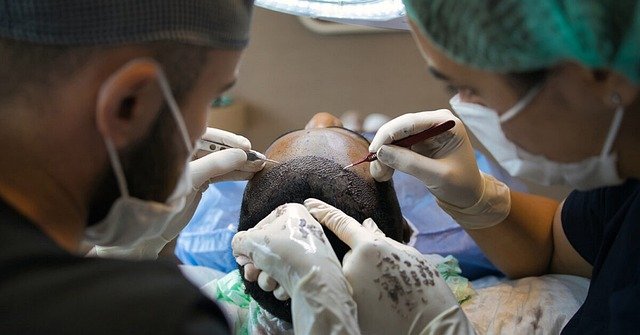When it comes to medical conditions that can be treated through a hair transplant, it is important to note that this procedure can be used to treat a variety of conditions. While some of these may be considered cosmetic, there are a few medical conditions that a hair transplant surgery can help with.
Medical Conditions Contributing to Hair Loss
Alopecia areata is one medical condition that can be treated with hair transplants. Alopecia areata is an autoimmune disorder that causes patchy hair loss on the scalp. While the exact cause of this condition is unknown, it is believed to be linked to genetics and other factors. A hair transplant can help to restore the hair that has been lost due to alopecia areata.
Another medical condition that a hair transplant can help with is hair thinning. Hair thinning is the process of losing hair and it can be caused by a variety of factors, including aging, stress, and certain medical conditions. A hair transplant can help to restore the thickness of the hair, giving it a fuller and more natural look.
A hair transplant can also be used to treat burns, scars, and birthmarks. Burns and scars can cause patches of hair loss on the scalp and a hair transplant can help to restore the hair in these areas. Birthmarks can also cause bald spots, and a hair transplant can help to restore the hair in these areas as well.
Hair transplant can also be used to treat conditions such as male pattern baldness and female pattern baldness. Male pattern baldness is caused by hormones, genetics, and age and it can lead to receding hairlines and thinning hair. Female pattern baldness is also caused by hormones and genetics, and it can lead to thinning hair and receding hairlines. A hair transplant can help to restore the hair in these areas and give the person a more natural look.
Lastly, a hair transplant can also be used to restore hair that has been lost due to chemotherapy and radiation treatments. These treatments can cause hair loss, and a hair transplant can help to restore the hair in these areas. It is important to speak with a qualified hair transplant surgeon to determine if a hair transplant is the best option for you.
A Deeper Look at Transplants
Hair transplants are a surgical procedure that involves taking healthy hair follicles from one area of the scalp, and transplanting them to the area of hair loss. The transplanted hair follicles will then continue to grow in the new location, providing a permanent solution for hair loss.
When considering a hair transplant, it is important to speak with a qualified hair transplant surgeon. They will be able to evaluate the area of hair loss and determine if this procedure is the best option for you.
The procedure begins with removing the healthy donor hair from the back of the scalp. This hair is then carefully transplanted to the areas of hair loss. The process is done under local anesthesia and is relatively painless.
Once the transplant is complete, the patient can expect to see results in a few months. The hair follicles will continue to grow in the new location, and will eventually begin to look natural.
Overall, a hair transplant can help to treat a variety of medical conditions. While some conditions may be considered cosmetic, there are a few medical conditions that a transplant can help to treat. If you are suffering from any of the conditions mentioned above, it is important to talk to your doctor to see if this procedure is right for you.























